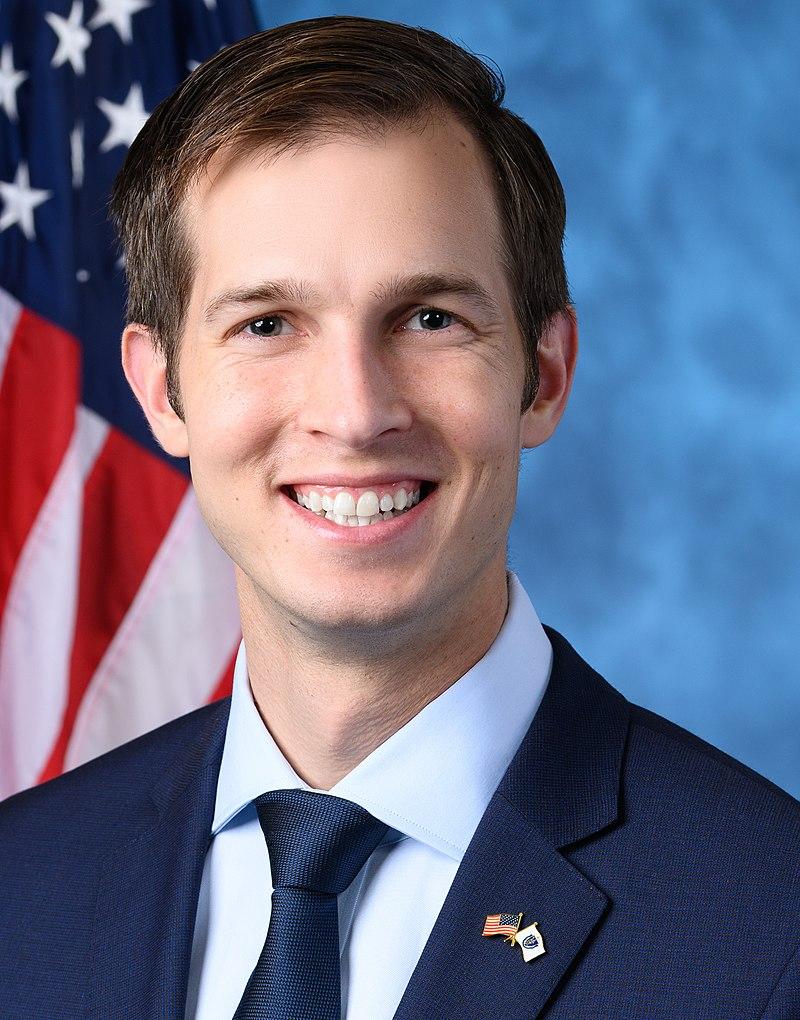The Slater International Center worked with many international students this summer to secure immigration documents and visas. However, when a few students needed additional support, Congressman Jake Auchincloss’ (D, MA-04) office stepped in to assist the Slater Center. Auchincloss visited Wellesley College on Oct. 19 to meet the students his office helped.
“It’s always important to me to be able to put individual stories behind the work that our office does, and the most important job we have is constituent services, [such as] helping immigrants or refugees have legal certainty about their status in the country,” Auchincloss said. “It’s inspiring to me to be able to see the effects of the work someone like John [Cruz-Olivari, Auchincloss’s district representative] does.”
The move to help Wellesley students furthers Auchincloss’ support of what he calls his “foreign policy for the 21st century.” He makes it clear that the power of the US lies not with weapons or “even directly the size of the economy,” but with talent.
“Colleges like Wellesley exemplify our ability as a nation to draw in the best and the brightest from around the world, and our immigration constituent services that we’re able to offer are really meant to be enablers … allowing Wellesley to pursue its mission,” he said.
Wellesley’s mission is one Auchincloss is familiar with. Growing up in Newton, a town 5 miles away from Wellesley, he found that many of the College’s values spread to the suburbs around it. Auchincloss finds the College’s mission, which is to provide a quality liberal arts education, to be critically important.
“Dr. [Paula] Johnson and others … emphasize STEM, of course, as being a critical component of preparing people for the workforce, but a liberal arts education is really the foundation, not just for productive participants in the economy but actually for good citizens,” Auchincloss said.
The College’s mission is not the only aspect of Wellesley Auchincloss praised. According to him, President Johnson established a potentially national reputation “within the higher education community on her proactive and science-driven [COVID-19] guidelines.” Auchincloss’ policies regarding the pandemic have been science-driven as well, focusing on vaccines and helping those beyond the borders of his district.
“I have been an active voice on vaccine diplomacy in particular, meaning that for the United States to truly take transnational leadership on the pandemic, we need to ensure not just that we’re vaccinating the domestic population but that we are helping to inoculate the rest of the world,” he said.
Auchincloss also attended the MIT Sloan School of Management, where he got into politics, becoming the city councilor for his hometown between his first and second years.
“I viewed it less as politics at the local level and more like a continuation of public service from my time in the Marine Corps … I think they share similar values,” Auchincloss said. “I had been in active duty for four years; I wanted to continue doing something that was public minded.”
From there, he decided to continue a path in politics. He wants to advocate for international students through streamlining the process for visas and continuing “to just be incredibly engaged with students who need the services” to achieve their dreams, which Auchincloss says also benefits the state and country.
His time as director for the $100K Entrepreneurship Competition at MIT also gave him the opportunity to interact with students from the greater Boston area.
“The best ideas and the best businesses are built with a diversity of viewpoints and skill sets [that] are not nationally defined,” he said. “There’s a really rigorous diversity of thought and skills [that] are going to produce the next generation of game changing companies, and they’re going to be here in Massachusetts creating jobs and solving problems.”
His experience also helped frame how college students can help be the change they want to see. Auchincloss refers to the need for an entrepreneurial spirit, which he clarifies doesn’t have to be in the private sector but can be in politics, nonprofits and more.
“I think an entrepreneur is somebody who looks at an old problem with new eyes. And I’ve seen great examples of that in all domains … and to have the next generation of college students being entrepreneurs on issues like climate change, immigration and national security, and a more fair productive economy is, I think, our best chance as a country,” he said.
Auchincloss also has something to say about students interested in politics. His advice? “Delete social media and knock on doors,” the same way he did to become a city councilor while at MIT.






